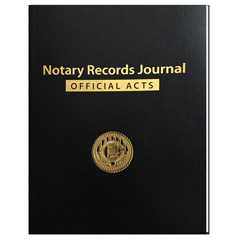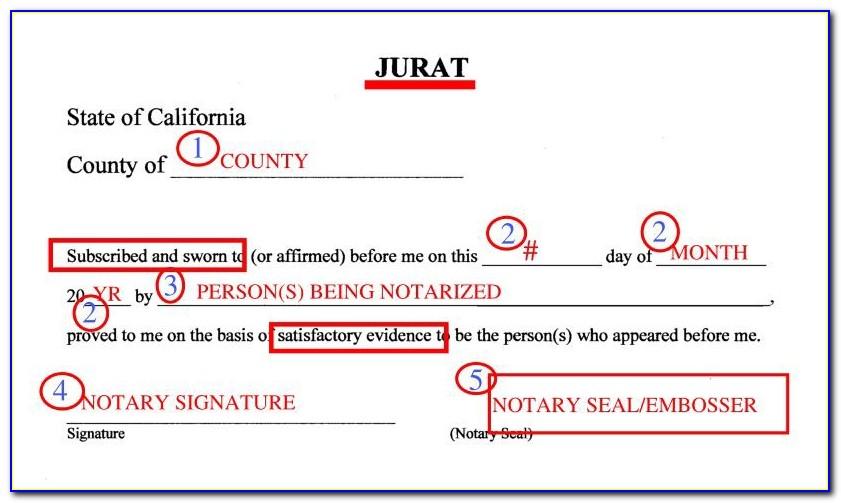Signing a critical document is a major moment in life, whether you’re purchasing a home, getting married, or establishing a business. But did you know that even though you’re signing on the dotted line, there’s often an individual behind the scenes ensuring the document’s validity? That’s where a notary public steps in, and their meticulous record-keeping, captured in a notary journal, plays a vital role in the process.

Image: www.notaryrotary.com
In Washington State, notaries are required to maintain a journal documenting each notarial act they perform. This detailed record serves as a crucial piece of evidence, ensuring the legality and authenticity of signed documents. Understanding the specifics of the Washington notary journal is essential for notaries, as it directly impacts their compliance with state regulations. This comprehensive guide will delve into every aspect of the notary journal in Washington, providing you with the knowledge you need to confidently navigate the requirements and maintain accurate records.
Understanding the Purpose of the Notary Journal
Keeping Track of Notarial Acts
The primary reason for a notary journal is to create a comprehensive record of each notarial act performed by a notary public. This includes:
- Date and time of the notarization: This ensures accuracy and verifies the act occurred within the notary’s commission period.
- Type of notarial act performed: Examples include acknowledgment, jurat, or certification of a copy. This information categorizes the specific service provided.
- Description of the document notarized: This provides a brief summary of the document’s purpose and may include its title or relevant identifying details.
- Name and address of the person signing the document: This information confirms the identity of the individual being notarized.
- Notary’s signature and official seal: This authenticates the notarial act and confirms the notary’s involvement.
Ensuring Legal Compliance
The notary journal serves as a valuable tool for ensuring compliance with state regulations. It allows:
- Verification of Notarial Acts: If any questions arise about the legality of a notarized document, the journal provides concrete proof of the notarial act, safeguarding both the notary and the involved parties.
- Documentation for Auditing: The Washington Secretary of State may conduct audits to ensure notaries are adhering to state laws and commission requirements. The journal serves as critical documentation in these audits.

Image: soulcompas.com
Essential Components of a Notary Journal in Washington
Required Information
Washington State mandates specific information to be included in the notary journal. These core components ensure the journal’s effectiveness and compliance:
- Heading: Each page must begin with a heading containing the notary’s commission number, full name, and current address.
- Sequential Numbering: Every entry must be sequentially numbered, ensuring a clear and organized record of each notarial act.
- Date and Time: The date and time of each notarization are crucial for tracking the chronology of events and ensuring compliance with the notary’s commission period.
- Type of Notarial Act: Specify the specific type of notarial act performed, such as acknowledgment, jurat, or certification of a copy. This helps clarify the nature of the service provided.
- Document Description: Include a brief description of the document notarized. This could include its title, purpose, or any identifying details.
- Signer Information: Record the full name and address of the person signing the document. This ensures verification of the individual’s identity.
- Witness Information: If a witness is present during the notary act, their name and address should also be recorded.
- Notary’s Signature and Seal: The notary’s signature and official seal authenticate the journal entry and confirm their involvement in the notarial act.
Choosing the Right Format
Notaries in Washington have the flexibility to choose the format for their journal. Options include:
- Bound Journal: This traditional format offers a physical record of notarial acts with consistent page numbers. It requires meticulous handwriting and can become cumbersome over time.
- Electronic Journal: State law allows electronic journals, offering convenient digital record-keeping and easy accessibility. However, it’s essential to choose a software program that meets the requirements outlined by Washington law.
- Combination Journal: A combination journal combines features of both bound and electronic journals, using a physical notebook for recording basic information and a digital platform for storing additional details and images.
Maintaining and Preserving the Notary Journal
Record-Keeping Best Practices
Accurate and consistent record-keeping is crucial for a notary public. Here are some best practices for maintaining your notary journal:
- Concise and Clear Entries: Entries should be written neatly and clearly, avoiding abbreviations or ambiguous terms. This ensures the journal’s readability and understandability.
- Prompt Recording: Immediately after performing a notarial act, record the details in your journal. This minimizes the risk of errors and ensures comprehensive information.
- Avoid Erasures and Alterations: Modifications to the journal can raise concerns about its authenticity. Any errors should be corrected by drawing a single line through the mistake, initialing it, and continuing the entry.
- Backups for Electronic Journals: If using an electronic journal, ensure regular backups to protect your data from loss or corruption. This safeguards your record-keeping and protects against potential issues.
Storage and Preservation
Proper storage of your notary journal is essential. It should be kept in a secure location, accessible only to you. Washington law doesn’t specify an exact retention period for the notary journal. However, it’s recommended to retain it for at least five years from the date of the last entry, and potentially longer based on the advice of legal counsel.
The Importance of Accuracy and Integrity
A notary’s journal serves as a legal record of trust and integrity. It’s crucial to maintain the accuracy and completeness of every entry. This not only protects your compliance but also builds confidence in your notarial services and ensures the trust placed in you by individuals and organizations requesting your expertise.
Understanding the Legal Implications
The notary journal is a legal document. Failure to properly maintain it can lead to legal penalties, including fines, suspension, or even revocation of your notary commission. It’s essential to understand and adhere to the requirements outlined in Washington State law to ensure your compliance and maintain a strong reputation in your professional practice.
Notary Journal Washington State
Conclusion
The notary journal is an essential tool for Washington State notaries public. It’s a legal document that ensures the accuracy and authenticity of notarized documents while providing essential documentation for audits and verifying the notary’s compliance. By understanding the requirements for a notary journal, embracing record-keeping best practices, and storing it securely, you can confidently maintain a compliant journal, protecting your reputation and ensuring the validity of the legal documents you notarize. For further information or specific questions, consider consulting the Washington Secretary of State’s website or seeking guidance from an attorney specializing in notary law.






